Members of the organisation that represents climbers, hillwalkers and mountaineers in England and Wales have elected its first woman president.
They also voted overwhelmingly to adopt a new governance structure for the British Mountaineering Council that will comply with Sport England standards.
Members at the BMC’s annual meeting in Kendal were presented with two options for new structures, one that would comply with Sport England’s ‘gold-standard’ for bodies seeking funding, and one at a lesser level that would not satisfy the requirements for organisations receiving taxpayers’ money.
The BMC and Table Tennis England were the only bodies not to have complied by the October 2017 deadline on governance standards.
Members gathered in Kendal heard that Sport England had frozen further grants, which in 2016 amounted to more than £½m. In 2017 this had dropped to just over £300,000. Many projects had suffered because of this, treasurer Graham Richmond said. The organisation expected to run a deficit of about £16,000 this year.
Vice-president Lynn Robinson won a two-way battle with Les Ainsworth for the post of president. Ms Robinson polled 4,168 votes to Mr Ainsworth’s 2,000. Most of these were cast via online voting, which was introduced for the first time this year and judged a success in increasing members’ democratic participation.
The voting on the new governance set-up attracted 6,800 votes, with more than 6,000 in favour of the option for higher standards, and just over 400 against. More than 400 members either abstained or voted for neither.
Phase one of the reorganisation will now take place, with a new board of directors to comply with company law, and the elected national council having a new role in holding the board to account, rather than directing strategy.
This arrangement only partly satisfies the recommendations of the BMC’s organisational review group, set up after the rancorous 2017 annual meeting which saw a no-confidence meeting in the executive committee defeated but president Rehan Siddiqui resign.
It is envisaged further measures will be brought to next year’s general meeting to introduce remaining recommendations, including changing the national council’s name to the members’ assembly.
Nick Kurth, who took over as acting president after Mr Siddiqui’s resignation, stepped down as vice-president and acting president at the Kendal meeting on Saturday.
He declared he would not tolerate any ‘bad behaviour’ at this year’s meeting and debate was more measured and less heated than at the 2017 gathering at Capel Curig.
Chief executive Dave Turnbull said the turmoil of the past year, which also followed the organisation’s aborted attempt to rename itself to Climb Britain, had had a detrimental effect on the BMC and cost it money. “There were lots of unpleasant interpersonal conflicts,” he said, “but people now want us to get on with it.”
The meeting heard that mountaineering was the fourth-highest participation sport in the country, ahead even of football, but that 90 per cent of that participation is through hillwalking.
The Mend Our Mountains campaign, which aims to raise £1m for footpath repairs, suffered because of a lack of time he could devote to it and to a lack of office resources, Mr Turnbull said. “It’s time to bury hatchets and move on together.”
Matthew Bradbury of the Access and Conservation Trust, which is overseeing the appeal, said pledges of about £300,000 had been received so far. The campaign will run until March next year.
A motion proposed by John Roberts, who was later elected a vice-president, seeking to ensure the BMC implemented the organisational review group recommendations and attain the higher Sport England level of governance, was overwhelmingly passed.
The meeting was then asked to consider which governance option to choose. Andy Syme spoke in favour of the national-council, executive-committee and ORG-backed option A and Andy Say for option B, which had been proposed by 44 members.
In a poll needing 75 of voters to secure victory, option A received 92 per cent of the votes to option B’s six per cent.
In other votes, lawyer Amanda Parshall was elected an independent director. Emma Flaherty re-elected a vice-president; Graham Richmond treasurer; Simon McCalla and Matthew Bradbury independent directors; and Roger Fanner, Rik Payne and Will Kilner national council representatives on the executive committee.
Former presidents Rehan Siddiqui and the late Mark Vallance were awarded honorary membership of the BMC.
Read grough’s interview with new president Lynn Robinson, the first woman to head the organisation.
- Bob Smith is a BMC member.
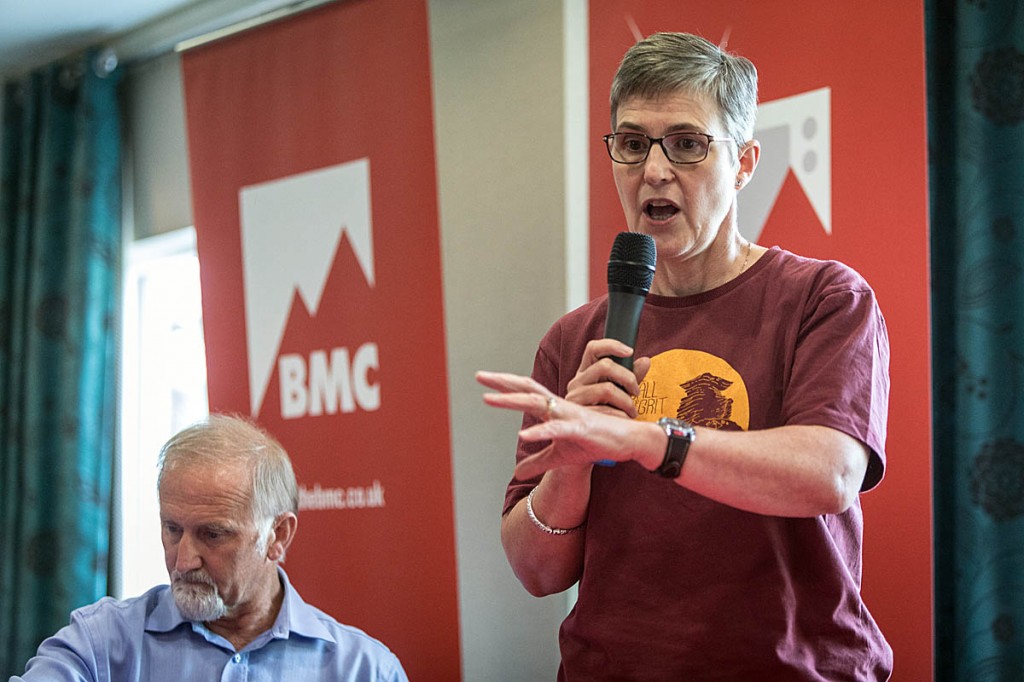
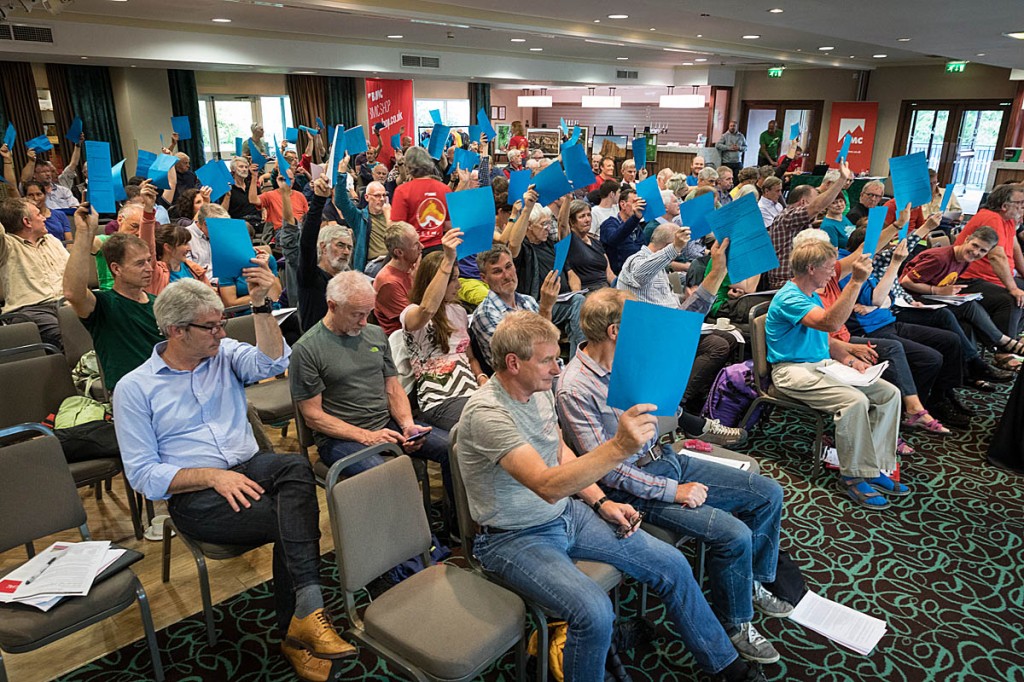
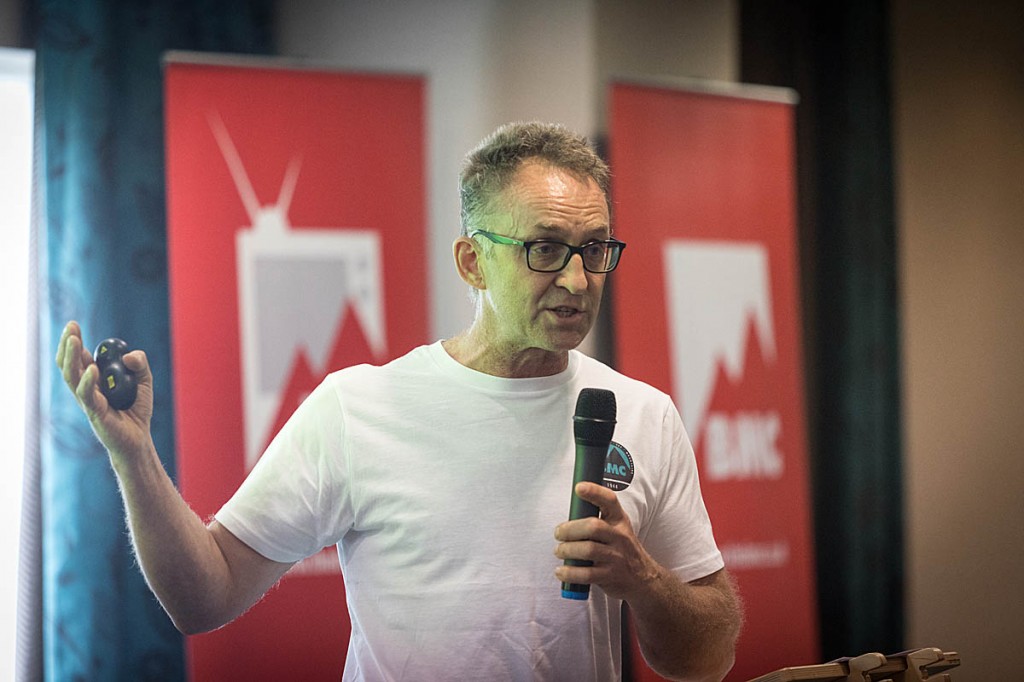
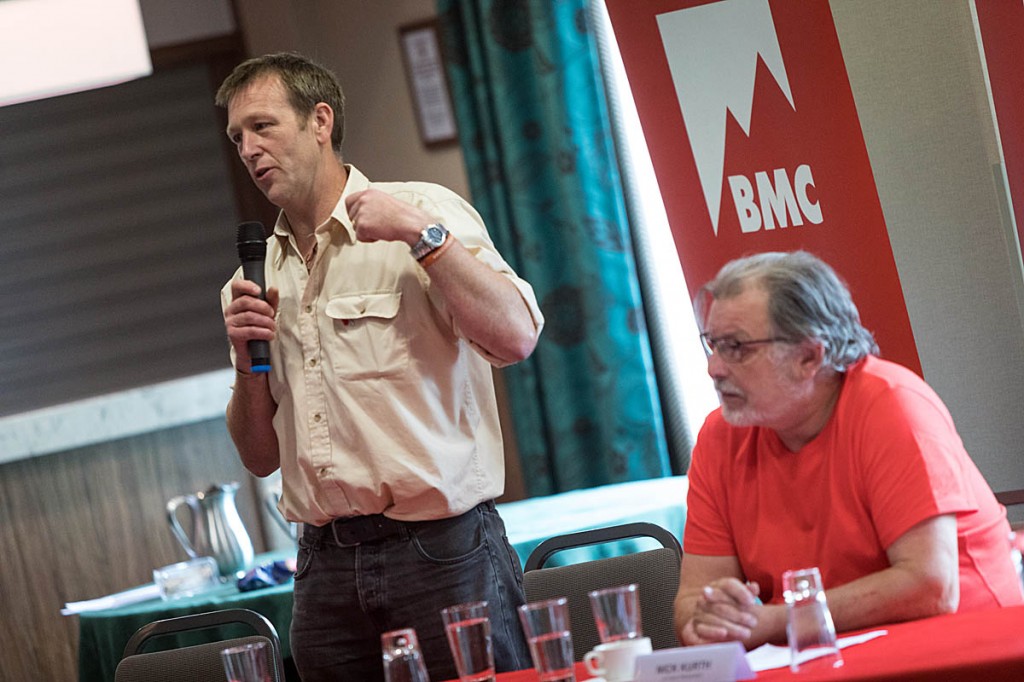
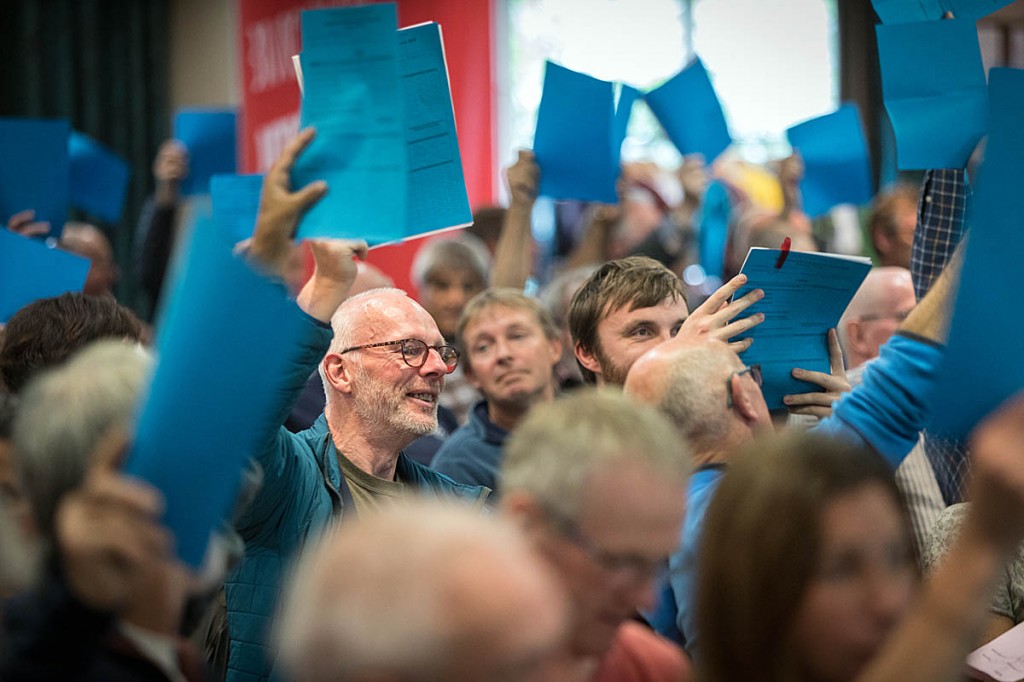
JG
19 June 2018This report omits to mention that despite the massive and one-sided propaganda operation mounted by the BMC establishment to bring out the vote, less than 10% of the much-vaunted 85,000+ BMC membership could even be bothered to vote either in person or by proxy. Both the official agenda papers and the online proxy forms carried biased statements in favour of the 'establishment' option on governance and sought to cast doubt on the validity of the opposing proposal. This despite the 'figleaf' of Electoral Reform Services supposedly ensuring correct process. Thus, far from the vote actually improving democracy within the BMC the outcome actually has now set in stone the considerable democratic deficit which deprives BMC members from voting directly for those who are supposed to "represent" them, as opposed to "governing" them.
Sport England may be pleased, but in time BMC members may come to rue the day they were robbed of control over their own organisation. Supping with devils always requires exceptionally long spoons to be used. Whatever the result of the BMC AGM vote, it does not automatically ensure that Sport England (public) funds will continue without end. The BMC should be cutting its cloth more carefully and not go on relying on the goodwill of the government.